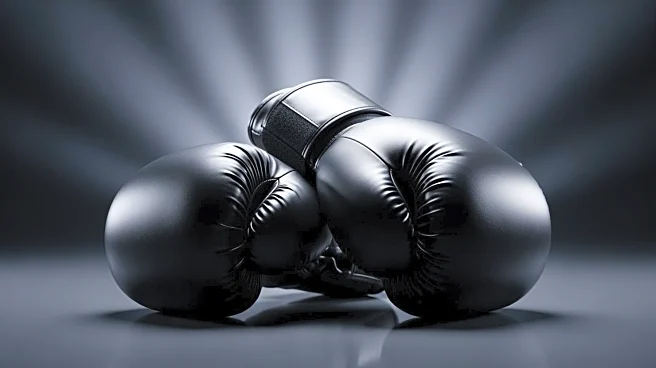What's Happening?
Dustin Poirier, a retired MMA fighter, is grappling with the challenges of retirement while contemplating a return to the ring for lucrative boxing matches. Despite retiring from the UFC earlier this year,
Poirier admits to battling the urge to compete again, driven by the belief that he can still defeat top fighters in both boxing and mixed martial arts. The allure of high-paying boxing matches, especially in the era of influencer boxing, presents a tempting opportunity for Poirier, who has considered potential bouts with notable fighters like Nate Diaz and Conor McGregor. However, Poirier remains cautious due to concerns about head trauma and the impact on his family life.
Why It's Important?
The potential return of Dustin Poirier to boxing highlights the ongoing trend of retired MMA fighters transitioning to boxing for financial gain. This shift underscores the growing influence of influencer boxing, which offers substantial earnings compared to traditional UFC fights. Poirier's decision could impact the combat sports industry by attracting more retired fighters to boxing, altering the competitive landscape and financial dynamics. Additionally, Poirier's contemplation reflects broader concerns about athlete health and the long-term effects of head trauma, influencing public discourse on sports safety and retirement planning.
What's Next?
If Poirier decides to pursue boxing, it could lead to high-profile matches that draw significant attention and revenue. Promoters may capitalize on his popularity and fan base, organizing events that appeal to both boxing and MMA audiences. Poirier's decision will likely influence other retired fighters considering similar transitions, potentially increasing the crossover between MMA and boxing. Stakeholders, including promoters and sports organizations, may need to address safety concerns and establish guidelines for retired athletes entering new combat sports.
Beyond the Headlines
Poirier's situation highlights the psychological challenges athletes face post-retirement, including identity struggles and the search for new purpose. His experience may prompt discussions on mental health support for retired athletes, emphasizing the need for comprehensive retirement planning that addresses both financial and emotional well-being. The ethical considerations of promoting fights involving retired athletes, particularly concerning health risks, may also gain attention, influencing industry standards and practices.









